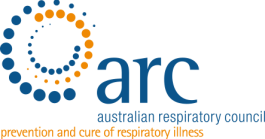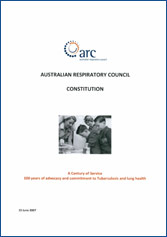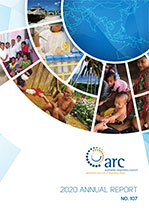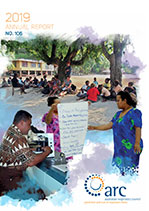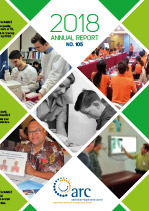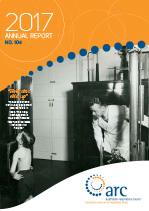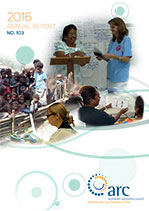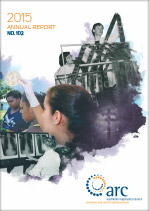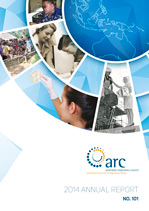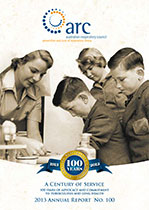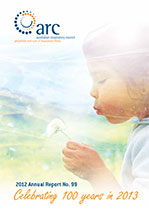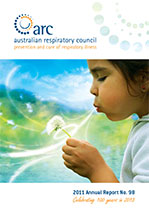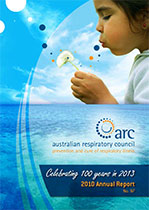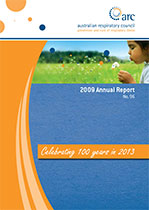A world free of tuberculosis and lung diesease.
ARC is a Charitable, Non-Government Organisation that continues to build expertise and sustainable capacity in respiratory health by:
- Fostering innovative research to promote respiratory health
- Improving lung health in communities with an emphasis on disadvantaged groups and Indigenous people
- Actively seeking sustainable solutions through partnerships with like organisations such as the Australian Lung Health Alliance, World Health Organisation, the Stop TB Partnership, Secretariat of the Pacific Community and the US Centers for Disease Control and Prevention
- Bringing focus to and investment in TB and respiratory health
- Respecting relationships with and the contributions of stakeholders and staff.
The values that ARC strives to reflect and embody include the following:
- Accountability to stakeholders
- Ethical and sustainable practice
- Credibility and professionalism
- Consultative and participatory practices
- Leadership in respiratory health
- Maintaining a development based focus
- Contributing to intellectual and professional development
- Implementing evidence based practices and activities that are community led, innovative, efficient, caring, compassionate and respectful.
- Marginalised communities in Australia
- Within the Asia Pacific Region
- For more about where ARC works, click here.
The Australian Respiratory Council has a long and proud place in the history of public health in NSW. Founded before World War I as the, National Association for the Prevention and Cure of Consumption, it opened the first anti-tuberculosis dispensary in Australia in September 1912.
Over the years the name was changed to reflect the changing mission of the organisation. In the early 1930s it became The Anti-Tuberculosis Association of New South Wales. The name was changed to Community Health and Anti-Tuberculosis Association in 1973. In mid-2001 the name was again changed to Community Health and Tuberculosis Australia (CHATA) reflecting the associations refocus on respiratory disease in the international context, with particular interest the Western Pacific Region.
After lengthy consideration, the association became known as the Australian Respiratory Council (ARC) in 2006, broadening its focus to incorporate the spectrum of respiratory disease, with particular interest in those diseases affecting the socially and economically disadvantaged communities.
In the 1940s, CHATA, began using mobile chest x-ray units for the detection of TB throughout NSW. By the 1950s there were eight mobile units taking 500,000 chest x-rays annually in NSW and other parts of Australia. Over the next twenty years, CHATA operated a state-of-the-art TB research and diagnostic institute in Sydney and was invited to provide technical assistance and TB detection service in several Asia Pacific countries.
From 1981, when the government took on the responsibility of mass TB screenings CHATA continued to serve the community through a mobile general screening service. In the early 1990s CHATA consolidated its role in the support of research grants and scholarships in the area of TB and other respiratory diseases. This research funding continues today with the Harry Windsor Research Grant Scheme and the Ann Woolcock Fellowship. ARC’s early years of providing technical assistance to build capacity relating to TB in the Asia Pacific Region has been expanded and is a major focus of program development work today.
For a brief outline of our history, click here to read A Century of Service.
For a more in depth history of ARC/CHATA and TB in Australia click here for information on Peter J Tyler’s book, No Charge No Undressing.
Over 100 years of service
1910 The National Association for the Prevention and Cure of Consumption forms at a public meeting in Sydney.
1912 Australia’s first tuberculosis (TB) dispensary opens in Sydney.
1913 First Annual General Meeting of the National Association for the Prevention and Cure of Consumption was held.
1941 Subscription from donors funds the acquisition of the first mobile x-ray unit. 1954 Mobile x-ray units in NSW and other parts of Australia take more than 500,000 x-rays in a year. 1982 Mobile vans are handed over to NSW Health.
1986 The first grants are provided for respiratory research and overseas TB Control.
2002 Laboratory skills training programs begin in the Pacific Region.
2005 Dr Ingrid Lang is appointed as the first Ann Woolcock Research Fellow. Dr Lang’s research is on Genetic influences
on causal pathways of acute lower respiratory tract infections in highly susceptible infants.
2005 In collaboration with the US Centers for Disease Control and Prevention the ARC Nurse Consultants
commence annual training for nurses and health care workers across the Northern Pacific TB Programs.
2006 Name changes from Community Health and Tuberculosis Australia (CHATA) to Australian Respiratory Council (ARC), reflecting our wider focus on respiratory health.
2007 ARC funds two Aboriginal Tobacco Cessation Projects; The Aboriginal Health and Medical Research Council’s BREATHE Project and the Aboriginal Health Council of Western Australia’s Beyond the Big Smoke Project.
2008 Development of a TB Resource Kit for professional and community education.
2009 Funding and technical support for the project - Combating TB in factory workers and the elderly commences. ARC partners with the Cambodian Anti-TB Association to deliver this project.
2010 Dr Jodie Simpson commences as the Ann Woolcock Research Fellow. Dr Simpson’s research is on
Characterisation and treatment of innate immune dysfunction in older people with obstructive airway disease.
2011 ARC contributes funds for training medical officers to build research skills and capacity in future leaders in respiratory public health in Vietnam.
2012 ARC becomes a foundation member of the newly formed Lung Health Alliance.
2013 ARC celebrates 100 years of service and advocacy for TB and respiratory health in Australia and the Asia Pacific Region.
2015 ARC hosted the 5th Conference of The Union Asia Pacific Region, held in Sydney, Australia.
2016 Launch of “Funding the Discovery of New Knowledge”- a compilation of reports from Harry Windsor grant recipients1986 -2015.
2018 ARC contributes to the work of The Union Asia Pacific Region and The Union Nurses and Allied Professionals Sub-Section.
2019 ARC continues to develop the Post Graduate Diploma / Masters of Nursing (TB Management).
2020 ARC is an implementation partner in the PEARL Project, working to eliminate TB & Leprosy in Kiribati
Board of Directors
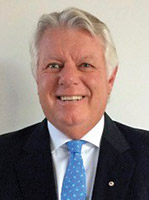
DAVID MACINTOSH AM
ARC President

ROBYN JOHNSON
Executive Vice President
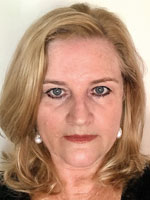
AMANDA CHRISTENSEN AM
Director
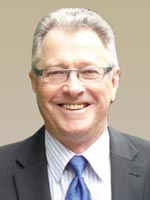
IAN W. RAMSAY
Director

KERRIE SHAW
Director
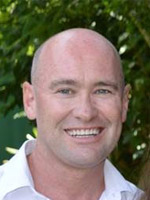
CHRISTOPHER TURNER
Director

PROFESSOR GREG FOX
Director

HEAN MARIE SANTOS
Director
Patrons
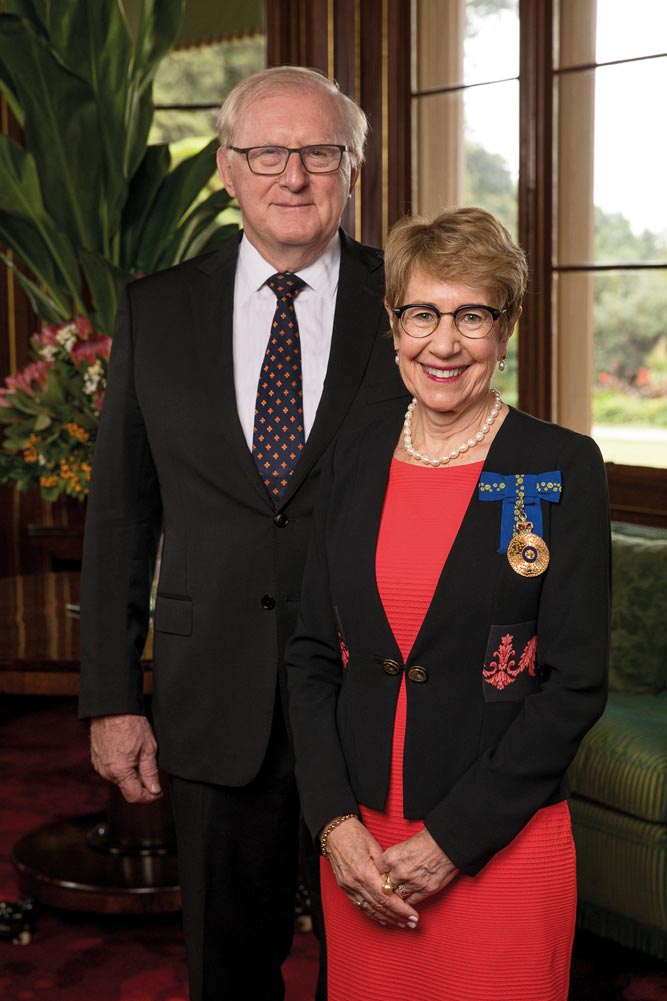
MARGARET BEAZLEY
Her Excellency the Honourable Margaret Beazley AC QC, Governor of New South Wales

MARGARET BEAZLEY
Her Excellency the Honourable Margaret Beazley AC QC, Governor of New South Wales
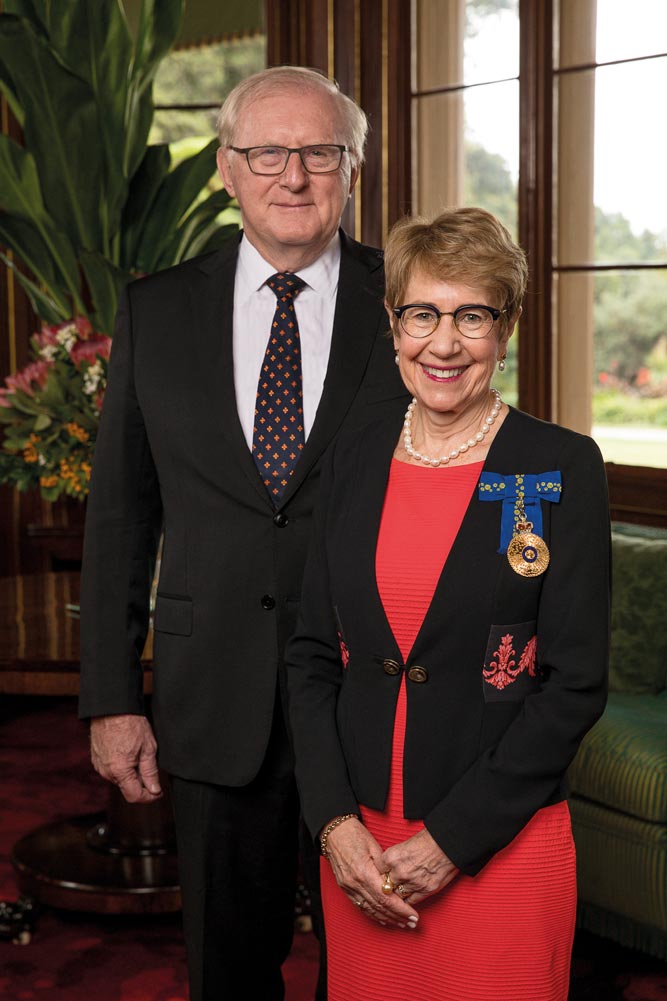
MR DENNIS WILSON
Life Governors
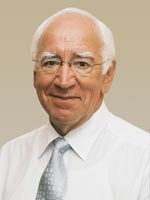
Clinical Associate Professor Peter Gianoutsos
2012

Amanda Christensen AM
2011

Professor Gavin Frost
2011

David Hugh Macintosh AM
2009
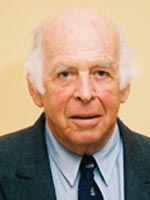
Emeritus Charles Baldwin Kerr
2006

Emeritus Professor John Paul Seale AM
2006

Emeritus Professor Noel Martin AM
2003
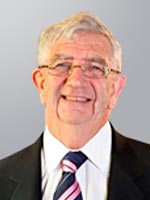
Emeritus Professor Ian Webster AO
2003
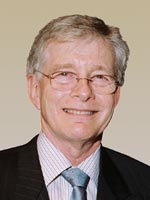
Clinical Professor Iven Young AM
2003
Research Committe

Professor Greg Fox (Chair of the Committee)
NHMRC Career Development Fellow and Associate Professor in Respiratory Medicine at Sydney University and Royal Prince Alfred Hospital, Sydney. Area Director of Tuberculosis Services, Sydney Local Health District.

Professor Carol Armour AM
Associate Dean, Medicine, University of Sydney.

Associate Professor Justin Denholm
Medical Director, Victorian Tuberculosis Program, Melbourne Health; and Principal Research Fellow, Department of Microbiology and Immunology, University of Melbourne

Associate Professor Claudia Dobler
Conjoint Associate Professor University of NSW, Associate Professor Bond University, Consultant Respiratory Physician NSW Health
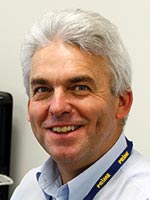
Professor Peter Gibson
Conjoint Professor, School of Medicine and Public Health University of Newcastle

Professor Emma McBryde
Professorial Research Fellow - Infectious Disease and Epidemiology Australian Institute of Tropical Health & Medicine, James Cook University

David Macintosh AM
ARC President
The Australian Respiratory Council (ARC) is a Charitable, Non-Government Organisation supporting prevention, treatment and research into tuberculosis and respiratory diseases at a national and international level. The ARC has been committed to building expertise and sustainable capacity in respiratory health by fostering innovative research to promote respiratory health. For further information on ARC’s Research Funding Guidelines please download a copy of the Research Funding Guidelines Document
Project Advisory Group

Kerrie Shaw (Chair)
Registered Nurse

David Macintosh AM
ARC President
ARC works with a panel of experts drawn from the areas of Public health, Community Development , Indigineous Issues and Respiratory Health who can be called upon to offer advice on Project design and technical issues.
Terms of reference
1. To provide advice and recommendations to the Board on
1.1 Policy, including
- ARC’s program strategy that defines ARC’s guiding principles, sectoral and geographic focus and methodology for ensuring quality delivery for projects in Australia and overseas
- Other project-related policy which strengthens ARC’s capacity to deliver and raise awareness about its projects
1.2 Project work, including
- Specific projects that ARC should undertake in Australia and overseas
- Project management issues which have financial or budgetary implications
2. To provide technical advice and guidance to the ARC in
2.1 Identifying and pursuing opportunities for ARC to expand its project work, including
- Sources of funding
- Potential partnerships
- Emerging respiratory health issues ARC is in a position to address.
2.2 Ensuring quality in project management, including
- Assessing sustainability of project activities
- Designing project proposals
- Interpreting quantitative and qualitative project data
- Formulating appropriate project management strategies
2.3 Designing and maintaining effective systems for project management, including (for example)
- Monitoring and evaluation guidelines
- Sustainability guidelines
3. To provide advice on appropriate matters referred to it by the Board or other Board committees
Governance Documents
POLICY STATEMENTS AND POLICY DOCUMENTS
Annual Reports
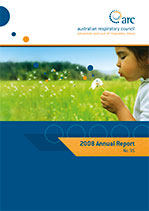
2008
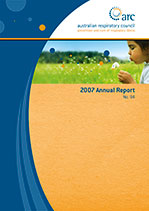
2007
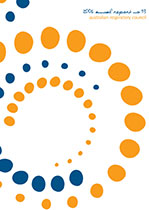
2006
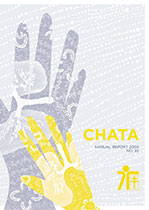
2005
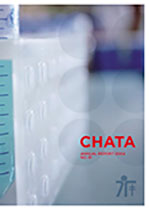
2004
Newsletters
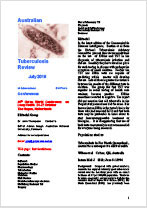
AUSTRALIAN TB REVIEW NEWSLETTER
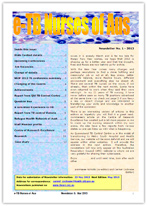
AUSTRALIAN TB REVIEW NEWSLETTER
AUSTRALIAN TB REVIEW NEWSLETTER ARCHIVE
- Australian TB Review - October 2017 Newsletter
- Australian TB Review - February 2017 Newsletter
- Australian TB Review - June 2016 Newsletter
- Australian TB Review - February 2016 Newsletter
- Australian TB Review - February 2015 Newsletter
- Australian TB Review - February 2013 Newsletter
- Australian TB Review - February 2012 Newsletter
